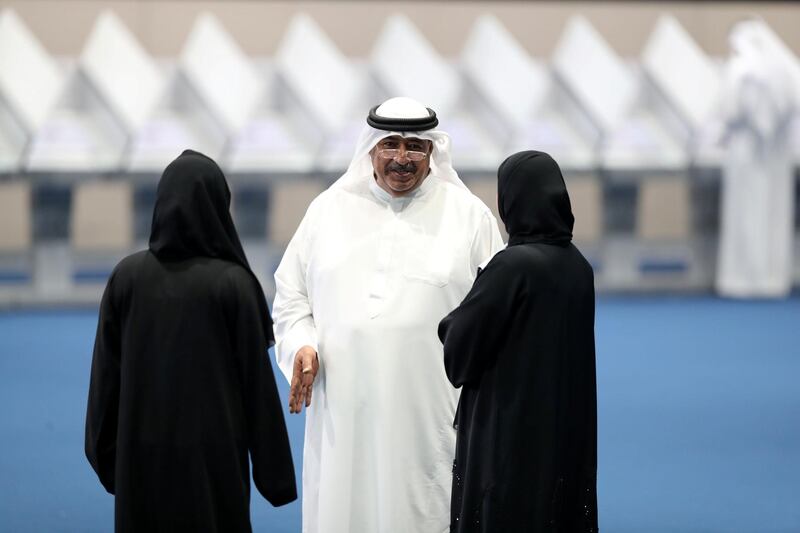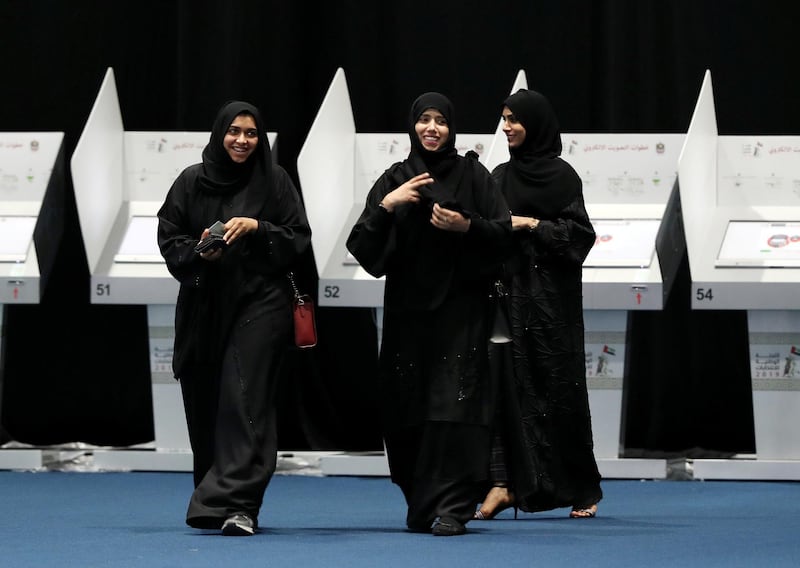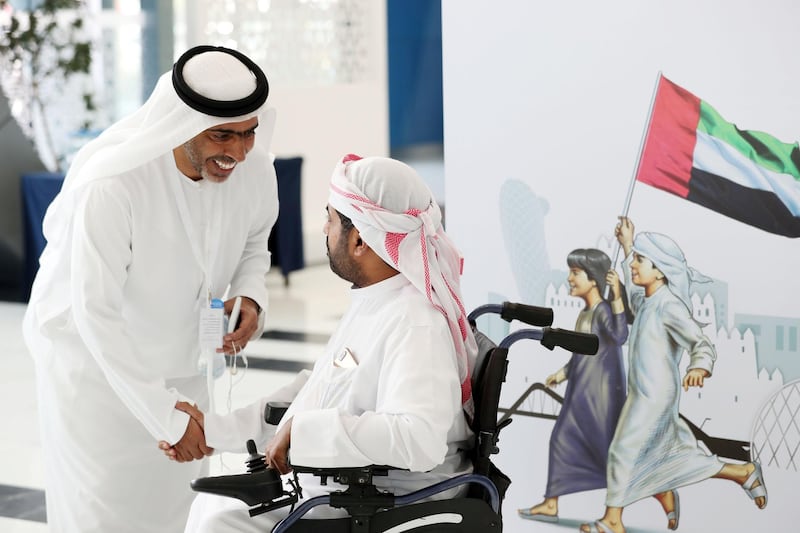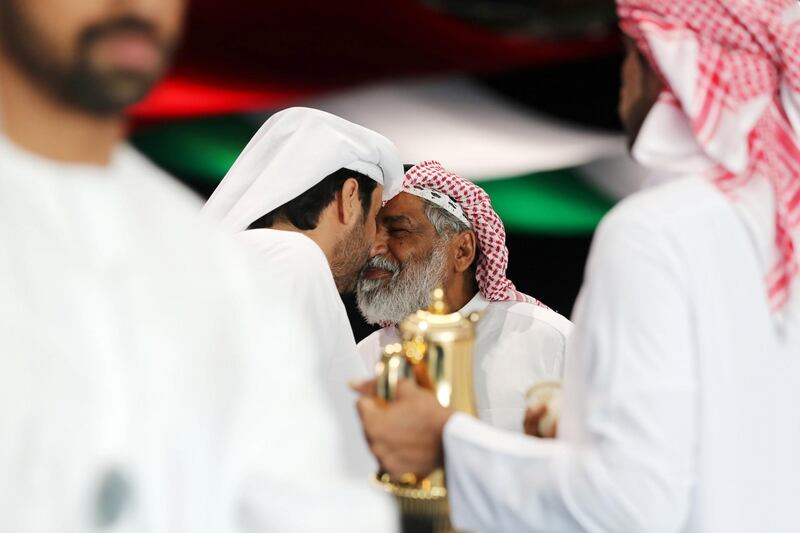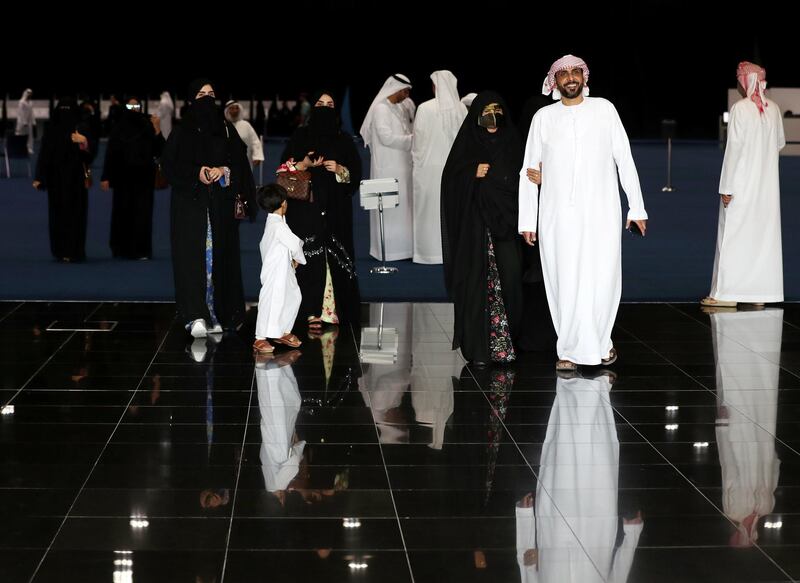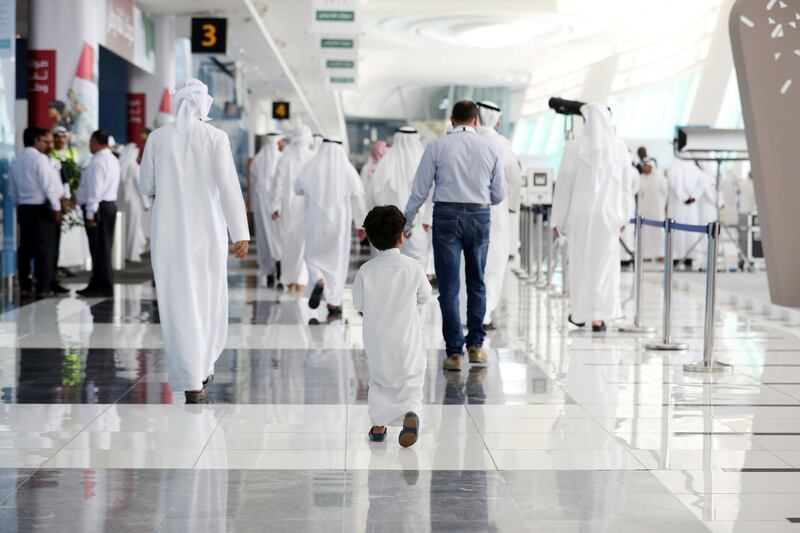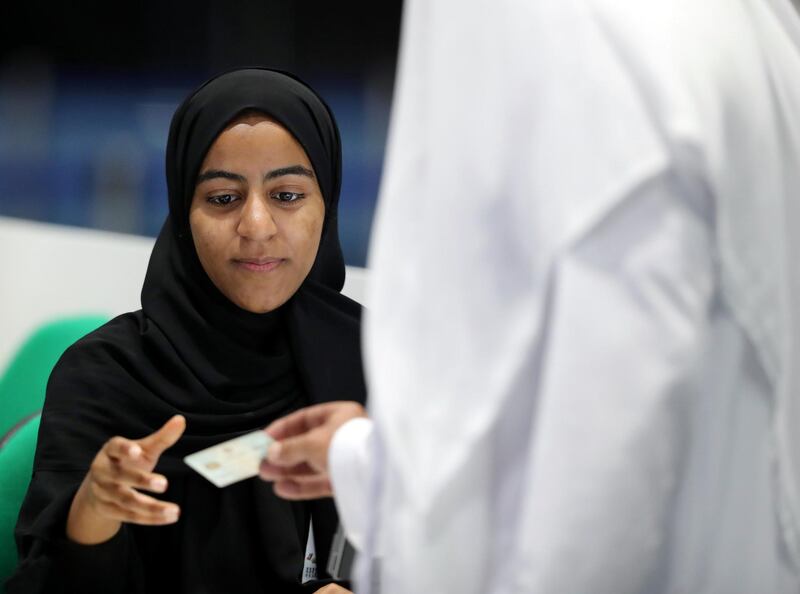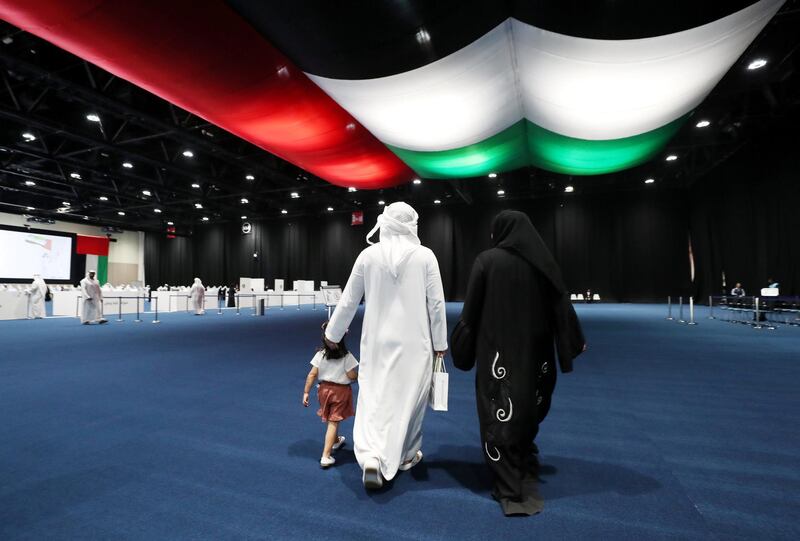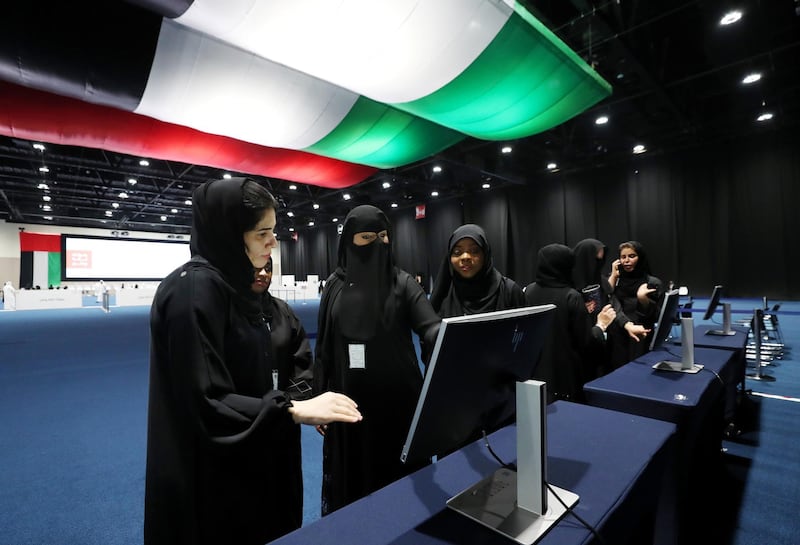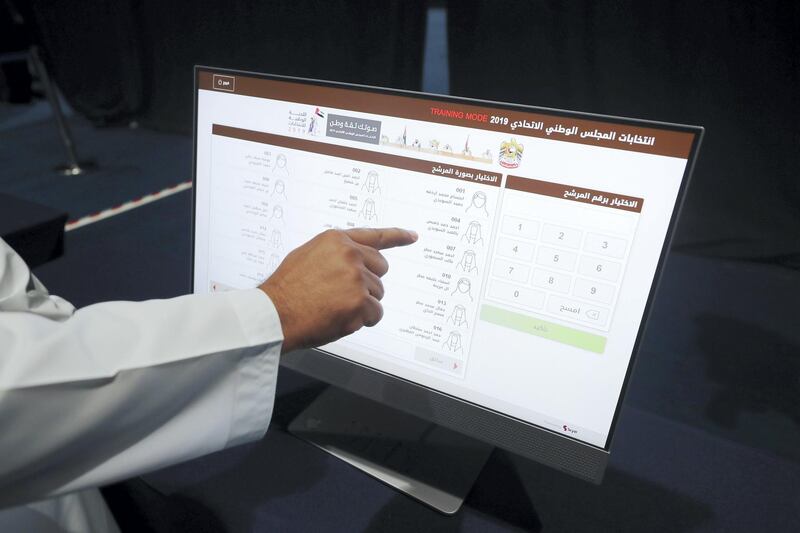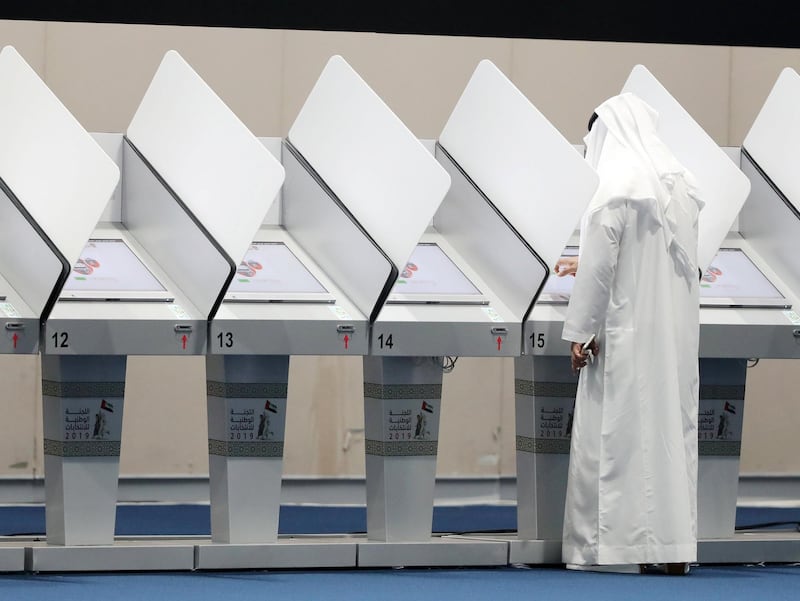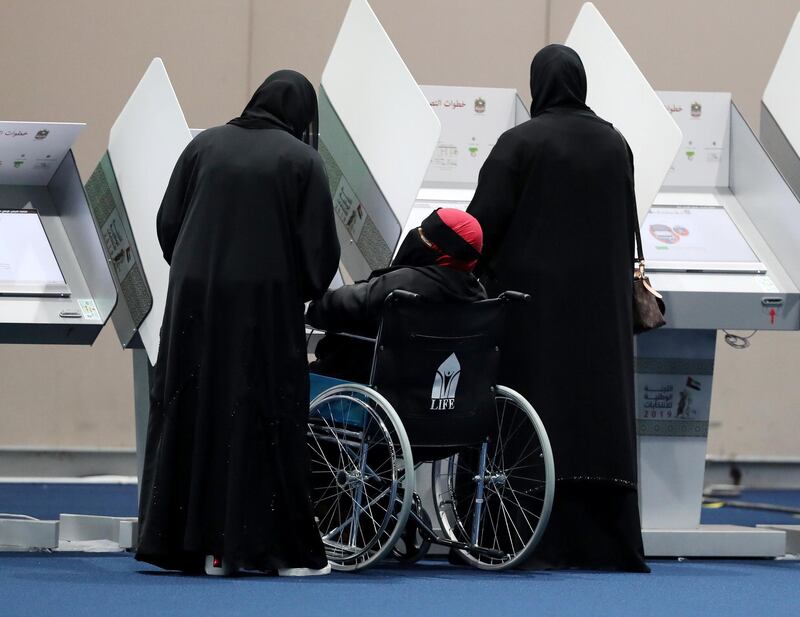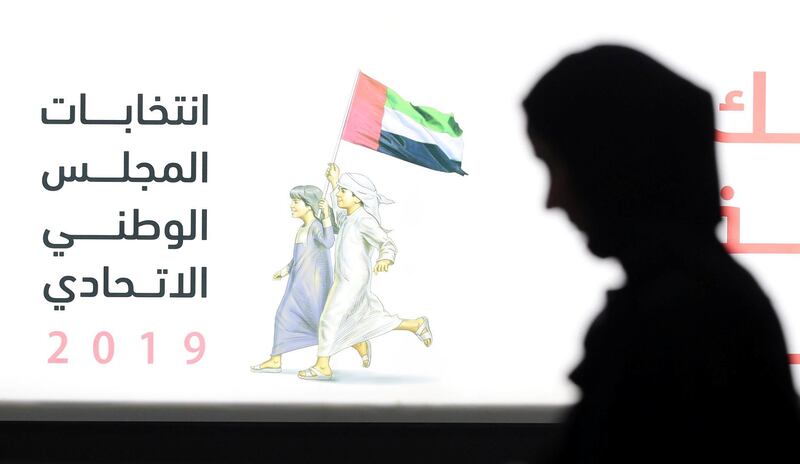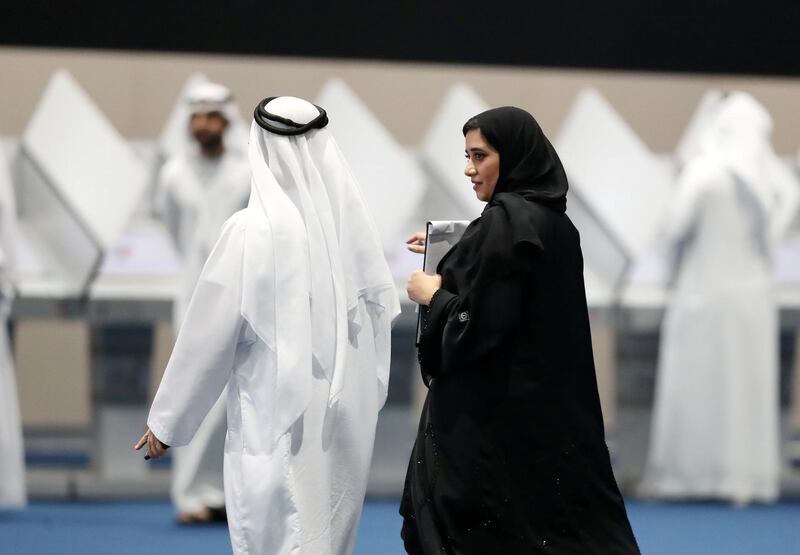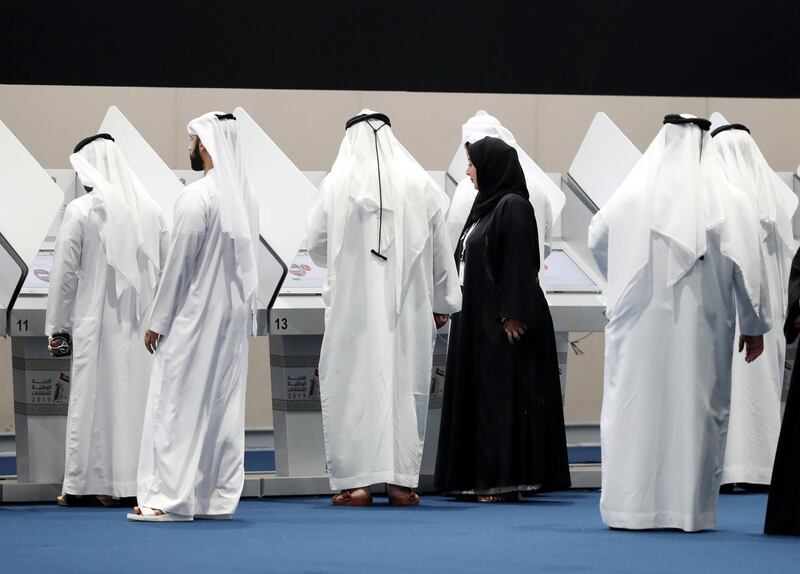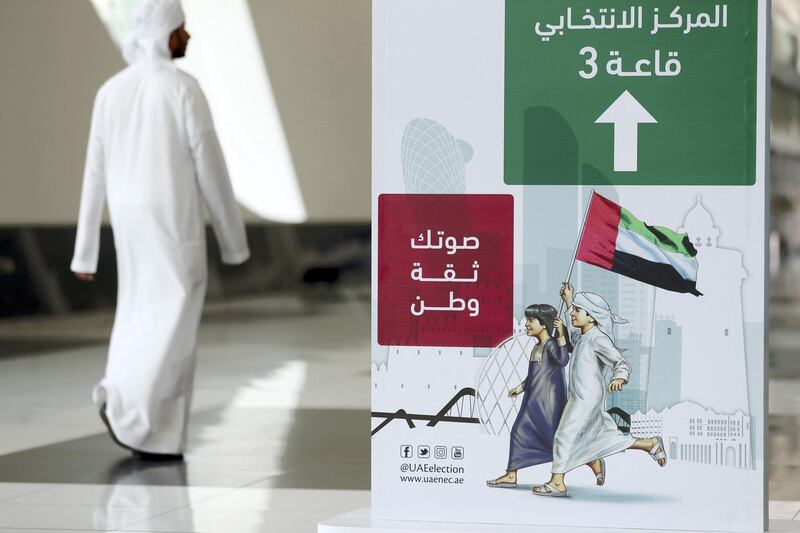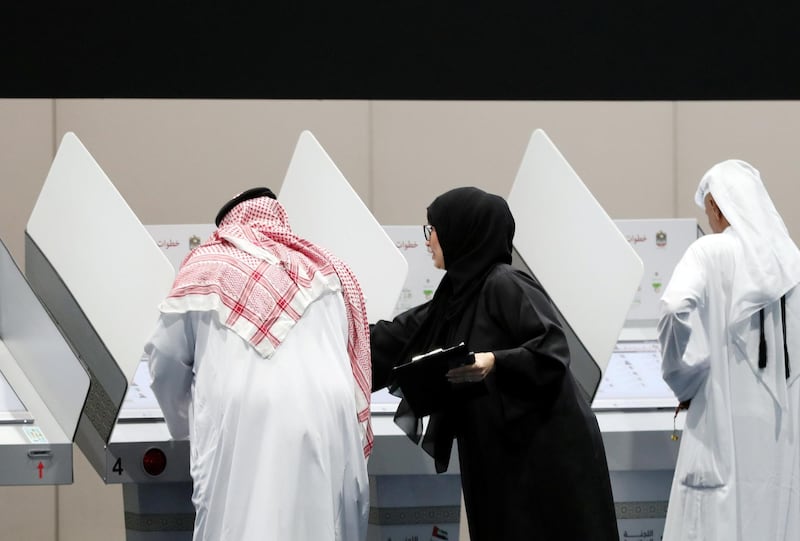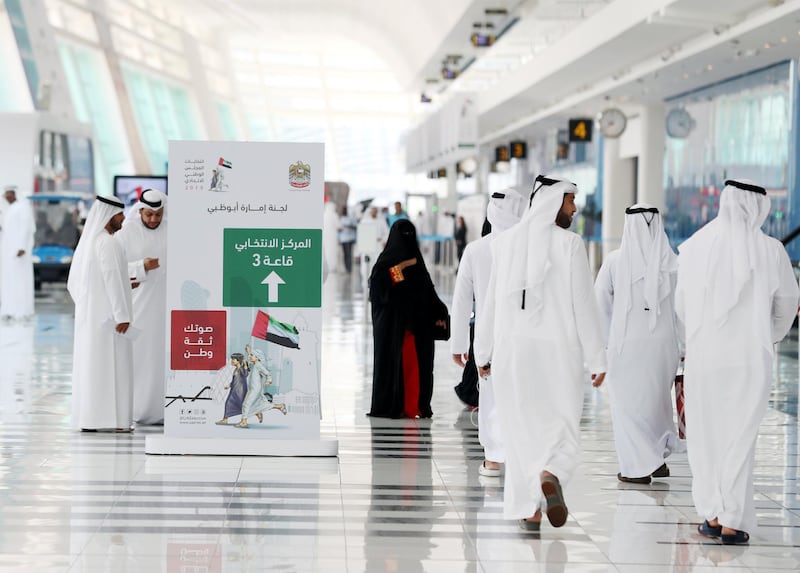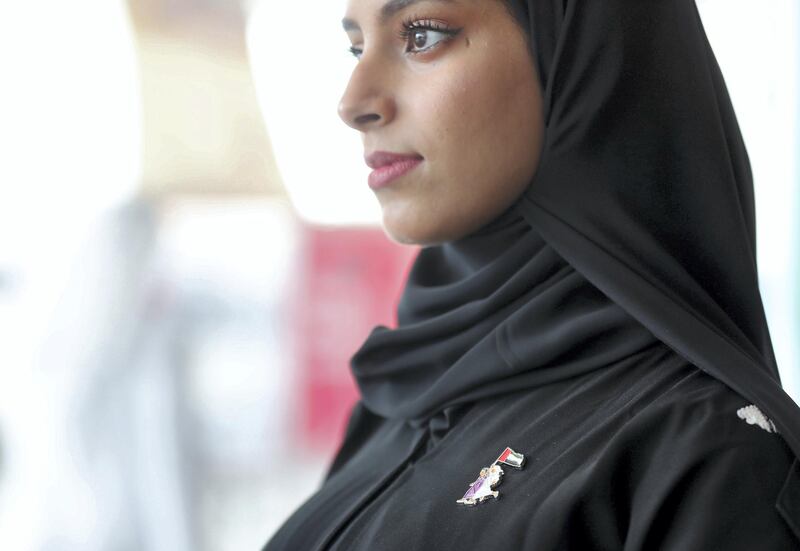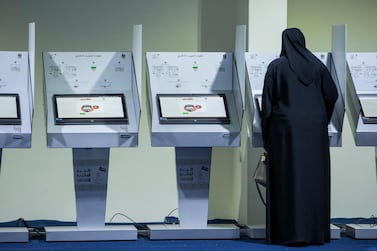Emiratis on Tuesday began voting in the UAE's largest election to date, with many arriving as polling stations opened at 9am.
Nine polling centres across the country will be open on Tuesday, Wednesday and Thursday to give citizens the flexibility to cast their vote. Thirty-nine stations will be open on Saturday, the main election day.
Although it is too early to predict at this stage, officials are hoping the turnout will be higher than in 2015 when 35 per cent of the electorate voted.
Many citizens told The National they voted along tribal lines and for members of their extended families.
Alkouri Al Ameri was among the elder voters at Abu Dhabi National Exhibition Centre when the polls opened. He held up his Emirates ID to show that he was born in 1933.
He voted for one of his tribesmen, Jouan Al Ameri. In previous years he chose another member of his tribe, Mohammed Musallam bin Ham Al Ameri, from the Bin Ham family that has business interests across the globe.
"Since there have been elections I have been coming to vote," he said.
Mbarka Al Ameri also voted for a member of her tribe, along with her daughter Zahra, 55, and son Saleh, 53.
They hope Dr Mubarak Al Ameri, whose posters across Abu Dhabi, Al Ain and Al Dhafra made him a high-profile candidate, will win a seat.
"Last election I voted for Mohammed bin Musallam bin Ham. He won the first time but lost the second time," she said.
"He was a sheikh [in his tribe], very influential, always helped people and was a society figure. We hope Dr Mubarak will be even better," said the 75-year-old.
Salem Al Mharami, who is in his sixties, was excited to vote for the first time.
"In the last two elections my name was not on the list," said the army retiree.
"The process was very smooth and voting is an important process to take part in so that the right, knowledgeable, intellectual people win and serve our country."
Former government officials also took to the polls on Tuesday with Saqr Ghobash, the former Minister of Labour, choosing to vote for a candidate he said he knew personally.
"Voting is a must and you should choose someone whose capabilities you are sure of."
Mr Ghobash said the FNC’s role was crucial to assessing government work, maintaining standards and ensuring accountability. As a minister, he was frequently summoned to the council to be questioned about his office’s work.
"This pushes you to evaluate your work and stop at issues that are being questioned that you may have not focused on in the past or bypassed without knowing.
"This is good for you as an official so you always consider if you have done your job as expected."
He said it was important that the electoral college be increased with each election to give every Emirati a voice.
"We hope that one day we [the public] will have full representation [in the council]."
At Ras Al Khaimah's single polling station – in RAK Exhibition Centre – mother of four Jameela Al Mazroui, 45, arrived from the inland town of Suhaila.
“This is the first time for me, and I was delighted to have this chance,” she said.
“I brought my mother and sister with me to share this special moment and to be among the first people to vote."
She was among dozens of Emiratis who flocked to the centre to cast their vote ahead of the main election day on Saturday.
Batoul Al Ali, one of the female candidates, said she did not expect such numbers on the first day of early voting.
“Senior citizens, people of determination, men and women came today to participate in the elections, and this makes us all proud.
“Four years ago, I was a member of the elections organising committee and today I am here as a candidate who is willing to be the voice of the community,” said Ms Al Ali.
Fatima Rashid, an Emirati mother of six, arrived to the centre on a bus with other women from Seih Al Burairat, an area on the western outskirts of the city.
“We came to support Waleed Al Habsi and give him our votes because he deserves it,” said Ms Rashid, 58.
“His electoral programme focuses on issues related to education and health and we believe he will be the one to represent us and speak about our problems at the council.”
Mariam Rashid, a 39-year-old Emirati who works at a government authority, came to vote for Hessa Al Shahi.
“It is a big responsibility and a duty to vote and choose the right candidate. I believe that Hessa is the right one for us as she is a journalist and very familiar with our issues.”
Who can vote?
Only Emiratis whose names have been included in the Electoral College List have the right to vote.
This year will be the largest election to date, with 337,738 Emiratis included in the list by the National Election Committee.
How Emiratis are chosen is unclear but citizens can only vote for candidates in their respective emirates.
The list identified 101,549 voters from Abu Dhabi, 60,772 from Dubai, 64,293 from Sharjah, 10,165 from Ajman, 6,653 from Umm Al Quwain, 55,289 from Ras al Khaimah and 39,017 from Fujairah.
The full list of eligible voters is on the committee's website — uaenec.ae — where Emiratis must validate their names by entering their ID number.
Check if you are an eligible voter here: https://www.uaenec.ae/ar/voters.
